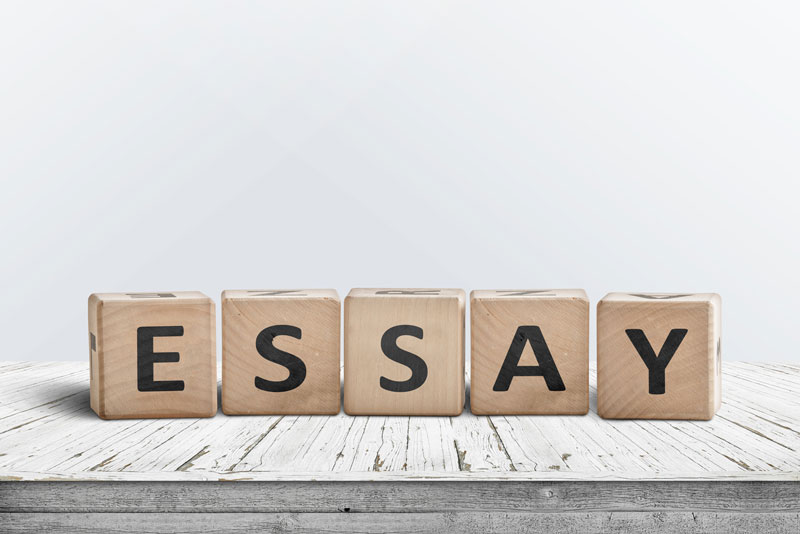
In elementary school, adventure narratives, picture stories, and descriptions of people or objects are the essays you’ll write most often. Here’s what makes them different.
Narrative of experiences
In an adventure narrative, the focus is on an event that needs to be described in a lively and exciting way. You may be given a topic, such as an account of an actual vacation experience, or the teacher may choose a title, such as “At the Last Second,” and you must come up with a fictional narrative of the experience. If you need help writing an essay, review the WritingAPaper services and order your best paper ever.
Here are a few more things to look for when writing an adventure narrative:
- Experience narratives are always written in the past tense, (“I went, I saw”).
- Think about an exciting structure of the experience beforehand. You should start with a calm narrative and then work towards a climax of tension. After that, the situation relaxes again and is resolved in the end.
- Draw the suspense and write key points for each stage of your story or draw appropriate pictures to help you visualize the story.
- Write as vividly as possible, often using verbatim speech and describing the feelings and thoughts of the person experiencing the story.
- Example of an adventure story
- Write an exciting story about an event you experienced on the class trip.
Picture Story

With a picture story, you may first need to put the pictures in the right order before actually writing. Alternatively, the pictures are already in the right order and you can get started with the description. In any case, you should keep the following in mind when writing a picture story:
- Look at the pictures very carefully and quietly several times.
- First, think about what the story will be about in general.
- Then look at the details of the pictures: Is there perhaps a small dog hiding behind a tree? Or are two children arguing with each other in the background? Such details can help you to tell an exciting story. But don’t get too lost in details that lead away from the main story.
- Most of the time, the pictures only depict individual scenes. Think about what could happen between the pictures and write down some keywords.
Person Descriptions/ Object Descriptions
Describing a person or an object is not about suspense, but it is about accuracy and clarity. Here are some tips on what to keep in mind:
- Take time to visualize the object or person in your mind’s eye. Sometimes it helps to close your eyes. Imagine walking around the person or object and looking at everything carefully.
- Sketch the person or object so that you can easily remember salient features and characteristics later when writing.
- Be strategic in your description, and it’s best to make a plan beforehand for how you will go about it.
- As you write, ask yourself the following questions: How should I describe the person or object so that someone who has never seen it before can picture it accurately? What can certain characteristics of the object or person be compared to? For example, if you find that the spokes of a bicycle look like the sticks of an umbrella, this can help the reader to visualize everything well.
In high school, you’ll usually be faced with completely different types of essays, some of which are more complex. However, this is no reason to despair, because if you follow our tips and approach the text in a structured way, you will succeed in every essay there as well.
Important questions to ask yourself when writing a synopsis:
- What are the most important events in the text?
- Who are the most important characters?
- Where does the action take place?
- When does the action take place?
- How do the characters behave or think?
- What events are related?
The interpretation

An interpretation is an attempt to grasp the meaning and intent of a text. Thus, an interpretation not only describes the content of the book, chapter, or poem but also analyzes any linguistic peculiarities. When interpreting a text, the time of origin or the epoch (e.g. naturalism, Sturm und Drang, romanticism ) and the text form (e.g. novella, love poem) must not be ignored. This is because, depending on the era, certain motifs, symbols, or historical events can play an important role.
Important questions you should ask yourself when writing an interpretation:
- What linguistic devices (e.g., metaphors, similes, symbols ) does the author use?
- What does he/she want to accomplish with the devices?
- What is unusual about the text?
- Are there any peculiarities in sentence structure, grammar, text structure, etc.?
- From which point of view is the story told? Are there one or more changes of perspective?
Characterization

Characterization involves describing a character who appears in a book, short story, or poem. This involves analyzing not only the character’s appearance but everything that the text or a particular passage reveals about the character. Use appropriate and varied adjectives when describing the character. You must always support a statement with quotations from the text. At the end of a characterization, analyze the influence of the character on the overall plot or the other characters.
Important questions to ask yourself when writing a characterization:
- How is the character’s physical appearance described?
- What situation is the character in? What is the character’s background? And what is his or her social position?
- What influence does society or social position have on the character’s behavior?
- How does the character interact with the other characters within the text?
- How does the character behave? Does she exhibit certain habits or mannerisms?
- Are there salient features in the character’s language? Does the language reveal anything about the character?
- What is the character interested in? What is she thinking? What problems are they preoccupied with? What does the reader know about the character’s feelings?








